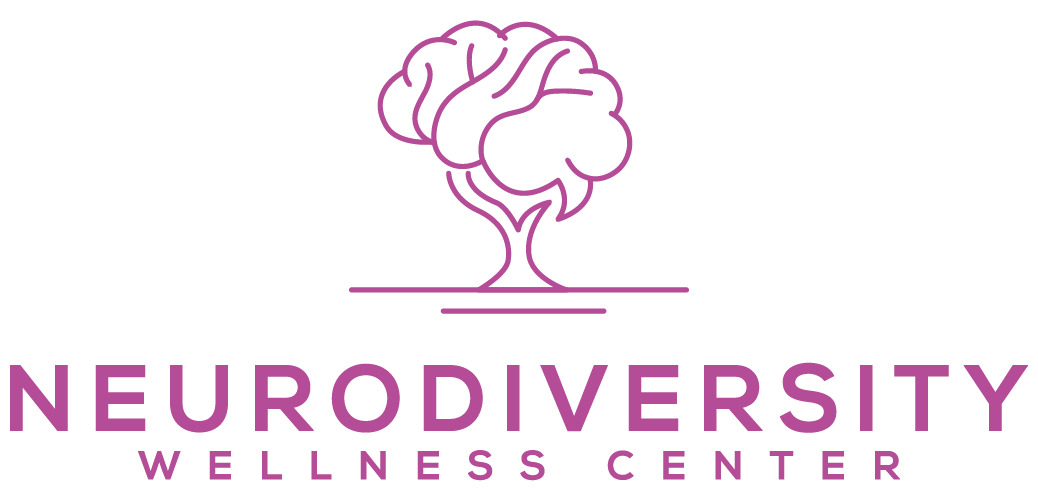Autistic Women Series, Autistic Traits are Often Overlooked in Women
Welcome to the first post in my series about autistic women. Diagnosing autism in women can be particularly challenging, even for experienced professionals. Why is this the case? Today, let’s dive into the reasons why many clinicians often overlook an autism diagnosis in women.
1. Autism Can Look Like Social Anxiety or Shyness
Many women are either not diagnosed or receive their autism diagnosis later in life because their challenges are misunderstood as social anxiety or shyness. For example, difficulties in reading social cues can lead to heightened anxiety, causing autistic women to avoid social situations. This social avoidance and minimal eye contact can easily be mistaken for shyness. Because shyness is often seen as culturally acceptable female behavior, family members and medical professionals might misinterpret autistic traits as mere introversion or social awkwardness.
2. Autistic Girls and Women Tend to Mask Their Autistic Traits
 Autistic or neurodivergent women often employ compensatory strategies, also known as camouflaging, to blend in socially. They might mimic others’ behaviors to appear more typical, such as laughing at jokes they don’t understand or nodding and smiling during conversations to appear engaged. Despite this, they may feel disconnected from the social nuances around them. For example, they might mimic the body language of their peers, as research indicates that people are naturally drawn to others who reflect their own body language. This camouflaging can make it difficult for clinicians to recognize their autism.
Autistic or neurodivergent women often employ compensatory strategies, also known as camouflaging, to blend in socially. They might mimic others’ behaviors to appear more typical, such as laughing at jokes they don’t understand or nodding and smiling during conversations to appear engaged. Despite this, they may feel disconnected from the social nuances around them. For example, they might mimic the body language of their peers, as research indicates that people are naturally drawn to others who reflect their own body language. This camouflaging can make it difficult for clinicians to recognize their autism.
3. Girls Are Expected to Be Polite and Have Good Manners
Girls, compared to boys, often face higher expectations to understand and adhere to social etiquette. They might be trained more explicitly in manners, helping them superficially fit in better than autistic boys. These social expectations can lead girls to mask their autistic traits more effectively, making it harder for professionals to identify them as autistic.
4. Other Symptoms, like Burnout and Depression, Might Overshadow Autism
Neurodivergent women often experience burnout and depression. Burnout may be due to the immense effort required to mask all day long, meet social expectations and manage adult responsibilities while dealing with sensory overload. Whereas, depression may stem from feelings of loneliness, inadequacy, or hopelessness from feeling different or like they are getting it wrong no matter how hard they try. Autistic women may also ignore their basic needs to avoid burdening others or standing out as different. Eventually, their bodies can’t sustain this, leaving them completely drained and hiding in a dark room without the energy to speak to others.
Due to burnout or depression, autistic women may need to take medical leave from work or school. These significant impairments in daily functioning often catch the attention of medical or mental health professionals, who focus on the burnout or depression symptoms without recognizing that a lack of understanding for their autism and need for accommodations has contributed to these struggles. Depression and mood disorders are more commonly diagnosed in females, and autism is still considered rare in women, which can result in autism being missed by professionals.
 There is Hope
There is Hope
For Autistic Women
At any age, there is hope. Identifying autism can be a turning point for many women, providing clarity and a new perspective on their lives. They can reevaluate their life through the lens of autism. This can help autistic women get to know themselves deeply, maybe for the first time in their lives. They begin to learn about and honor their neurodivergent needs, find neuro-friendly coping strategies, and affirming communities. This self-discovery is a process, as many autistic women have experienced trauma due to being blamed and shamed for their autistic behaviors. They have felt frequently misunderstood and judged by family, educators, and healthcare professionals. It takes time to process these social traumas and gain the confidence that they are worthy and their needs matter.
How Group Therapy Can Support Autistic Women
Group therapy provides a unique and supportive environment for autistic women to connect, share experiences, and gain insights into themselves and what supports them best. Through group interactions, autistic women can find a network of peers who truly understand their experiences. This connection fosters a sense of belonging and mutual support.
Key Benefits of Group Therapy for Autistic Women:
- Shared Experiences: Group members can discuss issues that matter to them as autistic women, finding common ground and understanding.
- Self-Awareness Growth: Group normalizes experiences, provides a safe space for self-exploration, and the opportunity to gain insights from hearing others share.
- Coping Strategies: Participants learn neuro-friendly self-care tools and accommodations to manage overwhelm, anxiety, and sensory overload.
- Communication and Relationship Skills: Groups provide opportunities to engage in more authentic communication without masking, as well as practice speaking for needs, self-advocacy, and boundary-setting.
- Resource Sharing: The group is a valuable source of information on autism resources, offering support and guidance specific to their needs.
By participating in group therapy, autistic women can find emotional support and gain confidence in navigating their social world. They also have the opportunity to build lasting friendships with others who understand their unique challenges. Moreover, the collaborative environment fosters personal growth and resilience, empowering women to thrive in various aspects of their lives.
Begin Therapy for Autistic Women in Los Angeles and San Francisco Bay Area, California (or Online)
Whether you self-identify as autistic or neurospicy, have received a formal autism diagnosis, or are questioning whether you’re autistic, we’re here for you. At Neurodiversity Wellness Center in Palo Alto and Los Angeles, as well as through telehealth, we offer a range of therapy services, including individual counseling and our specialized Autistic Women’s Group, designed to empower and support you. Here’s how you can get started:
- Contact us at Neurodiversity Wellness Center to schedule a complimentary 20-minute phone consultation to learn more about our services.
- Join us for a detailed 1-hour initial evaluation with an autism specialist where you’ll learn more about our Women’s Group and other services.
- Connect with other women who share similar experiences and traits in the South Bay Area or online!
Other Therapy Services at Neurodiversity Wellness Center
Our San Francisco Bay Area counseling clinic specializes in providing services for neurodivergent individuals and their families. We assist those who identify as autistic or neurodivergent, have an autism diagnosis, received a late-life autism diagnosis, or are questioning whether they are autistic. We focus on working with neurodivergent teens and adults, and well as their parents or romantic partners. Our autism counseling services include individual therapy, parent counseling, and group therapy. We offer different group therapy options specifically for neurodivergent women, autistic working professionals, neurodivergent young adults, college students who have received autism diagnosis, and autistic teens. Lastly, we have a blog that provides insights and resources on autism and mental health support. Please reach out to our autism therapy clinic to discuss our services and learn more about the many ways we can support you or your loved one.



